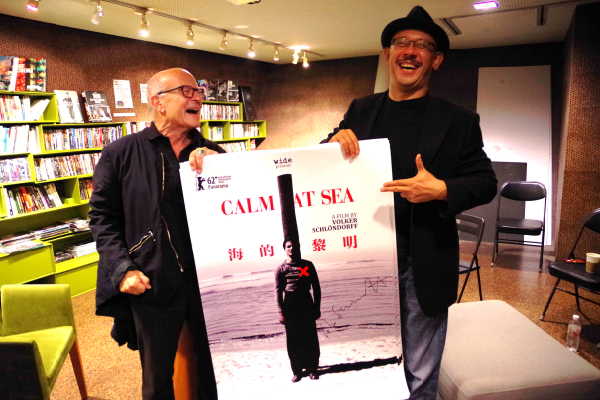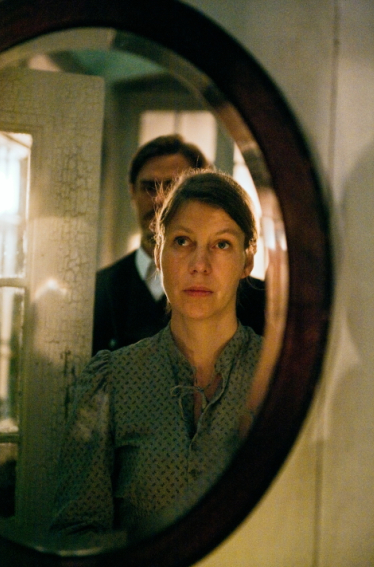

Goethe-Institut China has been bridging two cultures for a quarter-century, with cultural exchanges in music, dance, drama and other arts. Chen Nan looks at what's coming next.
Chinese President Xi Jinping's recent visit to Germany highlighted a long relationship that is in full flower this spring with a series of cultural exchanges.
The programs are fueled by the legacy of the writer Johann Wolfgang von Goethe, an iconic figure in German culture commemorated 200 years after his death in the name of the Goethe-Institut, which has been promoting cultural exchanges around the world since 1951.
Last year, the institute celebrated its 25th anniversary in China with a series of events that attracted more than 300,000 participants. In 2014, it continues its mission of promoting the use of the German language, providing access to knowledge and information about Germany, and cooperating with Chinese partners in fields such as music, dance, theater, film, visual arts and architecture.
The Goethe-Institut China has brought two exhibitions to Beijing that are currently on show: Nostalgia by Omer Fast at Central Academy of Fine Arts (through April 20) and a group exhibition, Art Post-Internet, which continues at Ullens Center for Contemporary Art through May 11.
The German band Messer will come to China to give three concerts and three workshops as part of the 2014 German-Chinese Language Year in Shanghai, Nanjing and Qingdao.
Strindberg's classic tragedy drama Miss Julie will tour Beijing and Tianjin in late April.
Candida Hoefer, one of Germany's most renowned contemporary artists, will come to Beijing to share and discuss her art world. The documentary Candida Hoefer, by Ralph Goertz, head of the Institute for Art Documentation and Scenography, will also be screened in Beijing in April. Goertz spent 10 years filming Hoefer and her work.
The German-Chinese Language Year has been underway for months, says Peter Anders, director of Goethe-Institut China.
Last year, 20 writers from Germany and China, including Marcel Beyer, Jia Pingwa and Zhang Yueran, were invited to talk about the power of literature in a series of five discussions.
"Learning a new language will offer a new perspective and even transform a person's life," Anders says, adding that nearly 3,000 people came to the institute to learn German last year.
Anders also points out that there are important events to be commemorated in 2014, such as the 100th anniversary of the outbreak of the World War I in 1914 and the 25th anniversary of the fall of the Berlin Wall in 1989.
"The general situation at the beginning of the 20th century proved to be as explosive as it was dynamic, a field of tension between cultural preservation and dynamic events," he says.
"In 2014, we hope for active debates, a lively exchange of ideas and the realization that history endows us with an insight into a global responsibility, one which will overcome what separates us without losing respect for the discernment of others."
Like China's Confucius Institutes and France's Alliance Francaise, the Goethe-Institut plays a key role in cultural communication, with 149 branch offices in more than 90 countries.
In 1988, the Goethe-Institut opened a small office inside Beijing Foreign Studies University, which was the first foreign cultural center in China. In the beginning, it only aimed at promoting German language but later it expanded to other cultural programs.
"It is really exciting for us to be here in China for 25 years," says Anders. "Looking back, we have held many successful cultural events and bridged conversations between people from China and Germany.
"A successful event for us means continuous and impressive. It may not be headliner but it should influence people for a long time," he adds.
In 2003, the Goethe-Institut China moved to their new office in Zhongguancun, one of the business centers in downtown Beijing. According to Feng Shuo from the Goethe-Institute China, the cultural programs not only cater to students but also people of various working fields, who are eager to get access to Germany and information about the country.
"The curiosity for a different culture brings unexpected rewards. We want to let people know that in a world which is full of material temptations, it's very necessary to be interested in art and creativity," Anders says.
"Cultural dialogue is important. We want to display different ideas and offer a platform to discuss. That's what we want to do."
Contact the writer at chennan@chinadaily.com.cn.
 |
|
German film director Volker Schlondorff meets Chinese director Jiang Wen when attending the German Film Festival co-organized by Goethe-Institut China in Beijing last year. Photos provided to China Daily |
 |
|
Strindberg's classic tragedy drama Miss Julie will tour Beijing and Tianjin at the end of this month. |